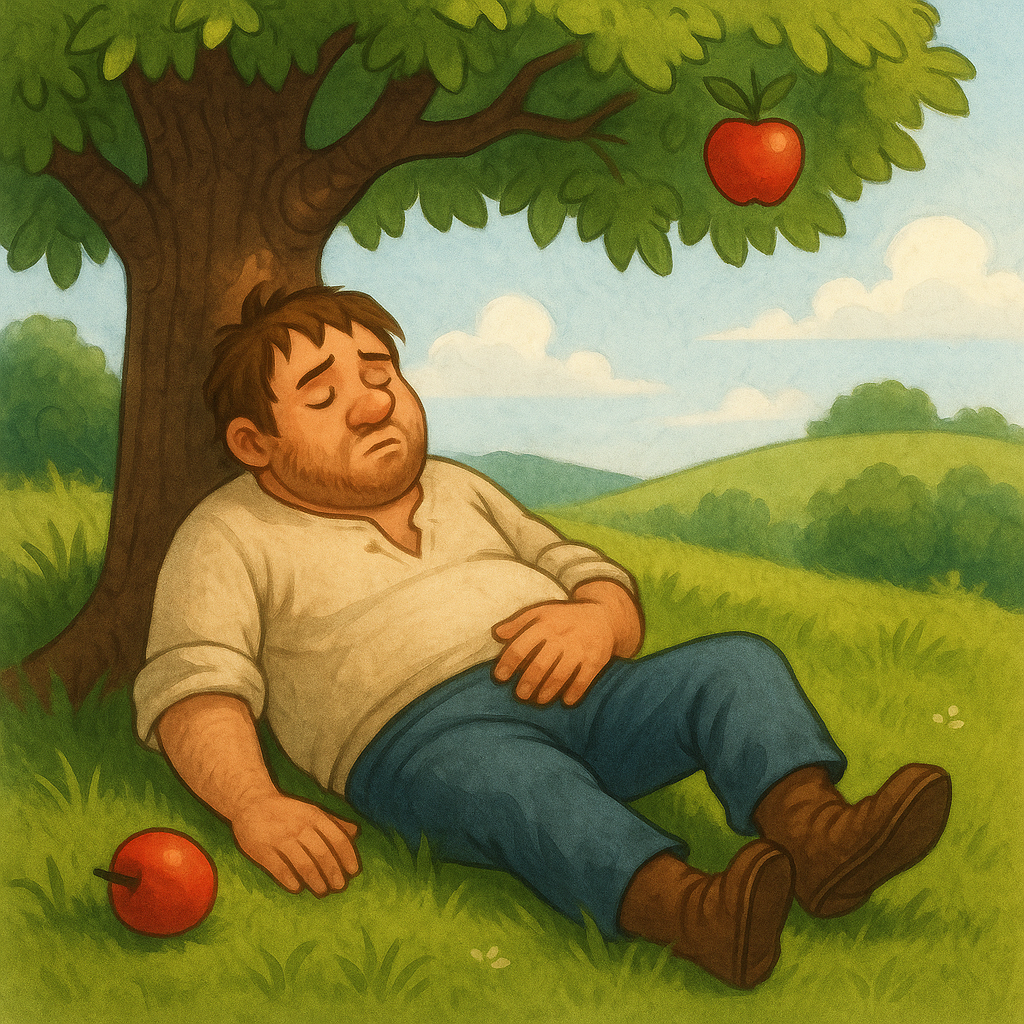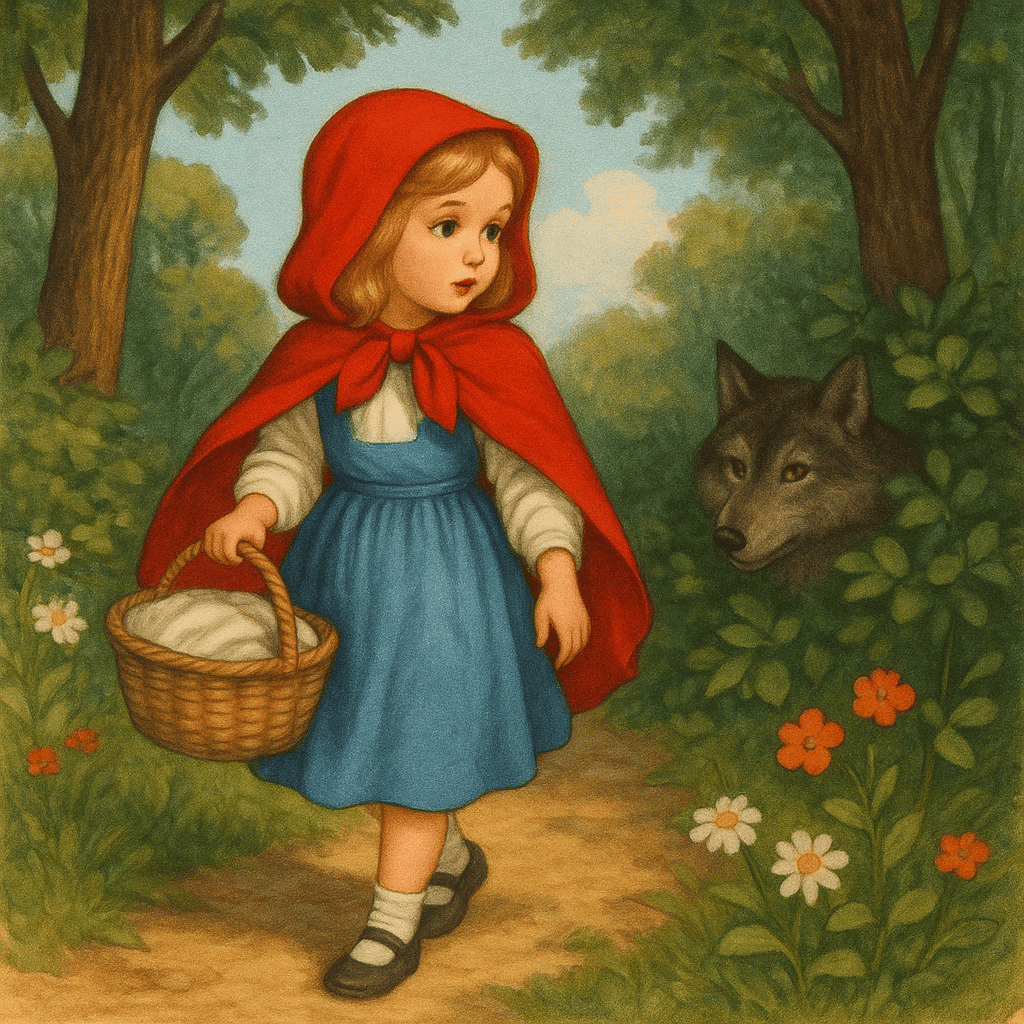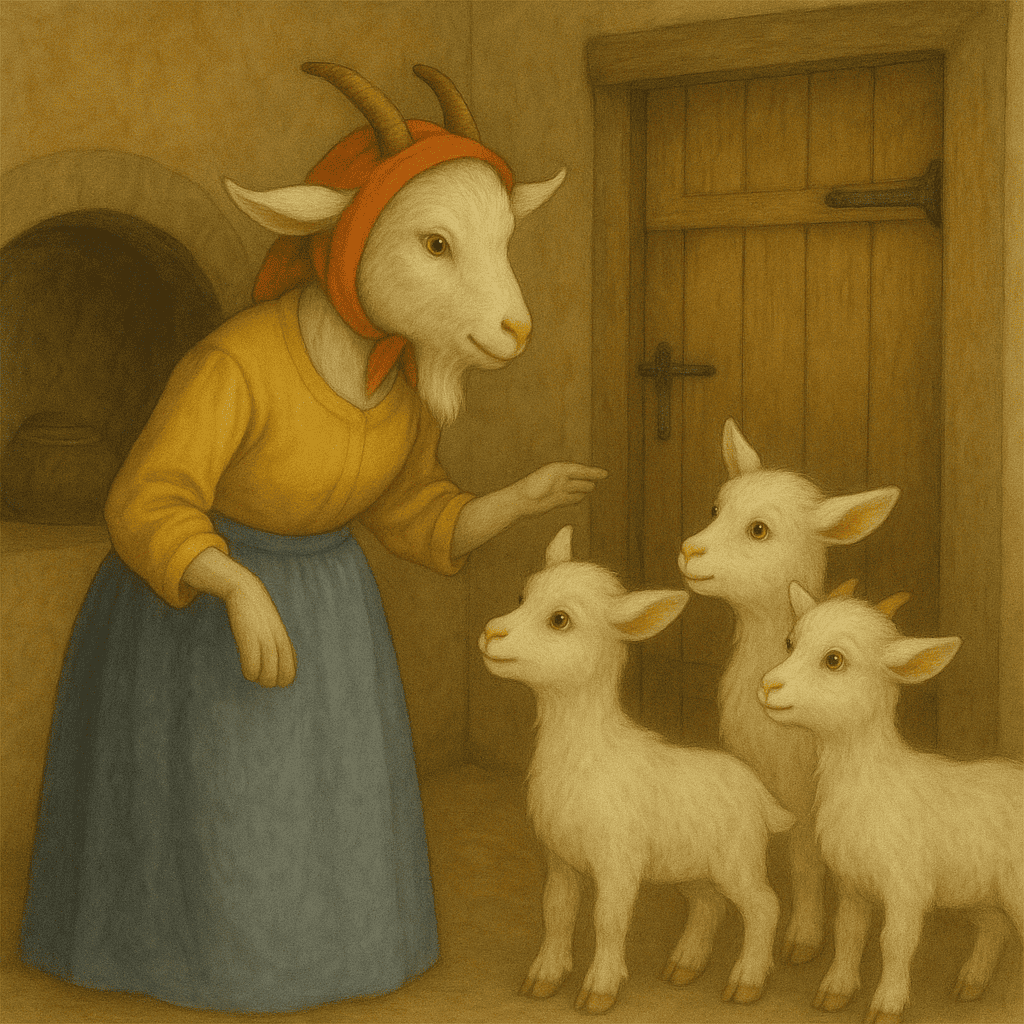A fost odată un om atât de leneș, încât nici să mănânce nu se ostenea, dacă nu-i punea cineva lingura în gură. Trăia într-un sat de oameni harnici, care îl priveau cu milă sau dispreț, dar niciuna dintre aceste priviri nu-l deranja prea tare. El se lăsa dus de zile, dormind până târziu, trăind din mila vecinilor sau din ce mai găsea prin bătătură. Într-o zi, trecu pe la el un vecin și îi spuse:
— Omule, te-ai gândit vreodată că viața asta nu ține la nesfârșit? Nu vrei să faci ceva cu timpul tău? — Eh, lasă, mai e vreme… răspunse leneșul și se întoarse pe cealaltă parte. Însă vremea nu l-a așteptat. Găinile au încetat să mai ouă, grădina s-a umplut de buruieni, iar casa a început să se dărâme pe la colțuri. Când nu a mai avut nici mâncare, nici acoperiș întreg deasupra capului, a pornit prin sat să ceară ajutor. Dar oamenii, obosiți de nepăsarea lui, l-au întâmpinat cu vorbele:
— Cine nu muncește, nici să mănânce nu merită!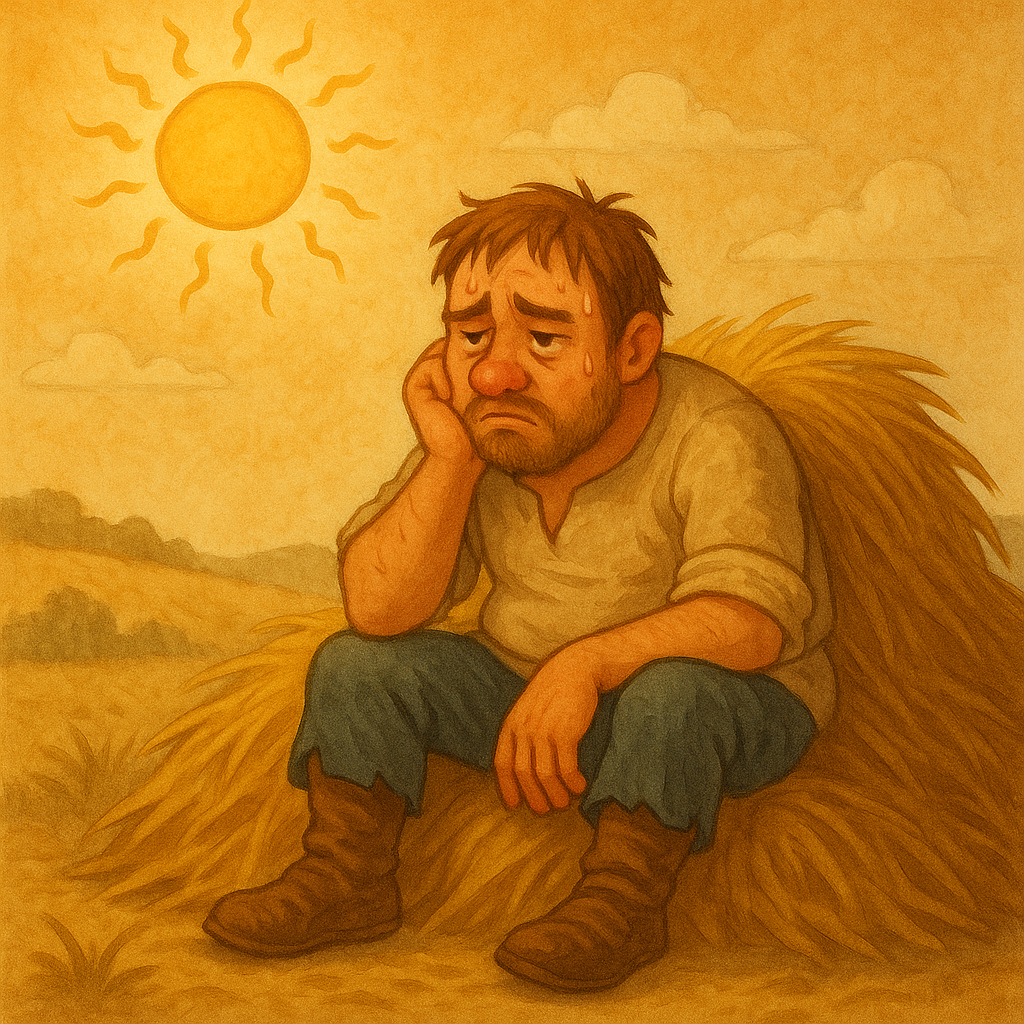
Atunci s-a dus la un boier, rugându-l:
— Măria ta, dă-mi o slujbă ușoară, că-s tare slăbit.
Boierul, om înțelept, i-a spus:
— Am ceva pentru tine.
Să stai toată ziua la soare și să păzești o grămadă de paie.
Dar să nu pleci de acolo nici pentru apă, nici pentru mâncare.
La sfârșitul zilei, dacă nu lipsește nimic, îți dau un ban de aur.
Leneșul, mulțumit, s-a dus și s-a așezat pe grămada de paie.
Soarele ardea, vântul bătea, foamea îl rodea.
Dar el n-a plecat.
Seara, boierul s-a întors și, văzând că paiele erau întregi, i-a dat banul.
Cu greu, dar munca aceea simplă îl învățase ceva: că și cel mai leneș poate să-și câștige pâinea, dacă vrea.
În ziua următoare, s-a dus din nou.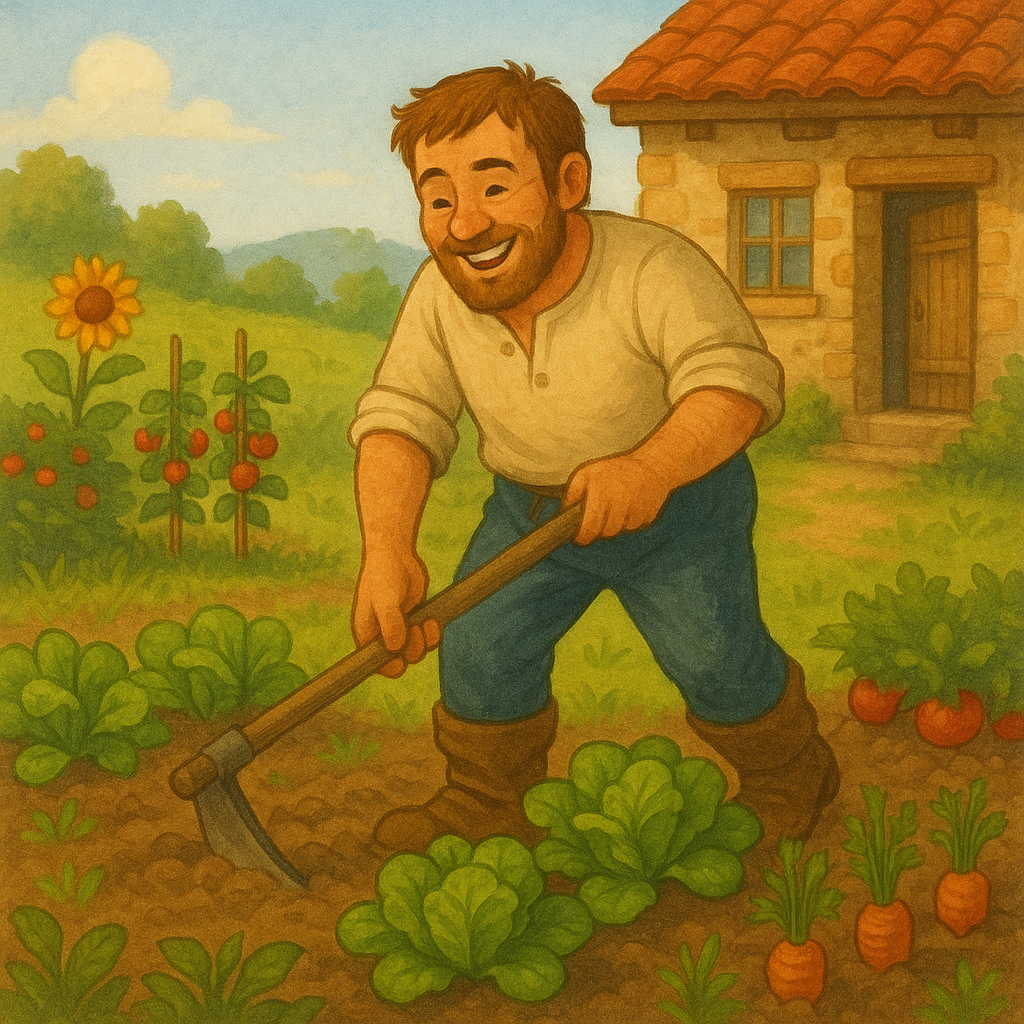
Și tot așa, zi de zi.
A început să simtă bucuria unei mese muncite.
Apoi a cerut o slujbă mai grea.
A învățat să sape, să cosească, să repare.
Casa și-a reparat-o singur.
Grădina a prășit-o și i-a dat rod.
Și lumea a început să-l privească altfel.
Nu mai era „omul leneș”, ci „omul care s-a trezit la timp”.
De atunci, îi sfătuia și pe alții:
— Mai bine să transpiri o oră decât să rabzi de foame o zi.
Once upon a time, there was a man so lazy that he wouldn’t even bother to eat unless someone put the spoon in his mouth. He lived in a village of hard-working people who looked at him with either pity or disdain, but none of these glances bothered him too much. He let the days slide by, sleeping late, living off the charity of neighbors or whatever he could find around the yard. One day, a neighbor stopped by and said:
— Man, have you ever thought that this life doesn’t last forever? Don’t you want to do something with your time? — Eh, there’s still time… the lazy man responded and turned over to the other side. But time did not wait for him. The chickens stopped laying eggs, the garden became overgrown with weeds, and the house started falling apart at the corners. When he had no more food and no complete roof over his head, he started to ask for help around the village. But the people, tired of his indifference, greeted him with the words:
— He who does not work, does not deserve to eat!
Then he went to a nobleman, begging him:
— Your lordship, give me an easy job, as I am very weak.
The nobleman, a wise man, said:
— I have something for you.
Stay in the sun all day and guard a pile of straw.
But do not leave it for water or food.
At the end of the day, if nothing is missing, I will give you a gold coin.
The lazy man, satisfied, went and sat on the straw pile.
The sun was scorching, the wind was blowing, hunger gnawed at him.
But he did not leave.
In the evening, the nobleman returned and, seeing that the straw was intact, gave him the coin.
With difficulty, but that simple work had taught him something: that even the laziest can earn his bread, if he wants to.
The next day, he went again.
And so, day after day.
He began to feel the joy of an earned meal.
Then he asked for a harder job.
He learned to dig, to mow, to repair.
He fixed his house by himself.
He weeded his garden and it bore fruit.
And people began to look at him differently.
He was no longer „the lazy man” but „the man who woke up in time”.
From then on, he advised others:
— It’s better to sweat for an hour than to starve for a day.

